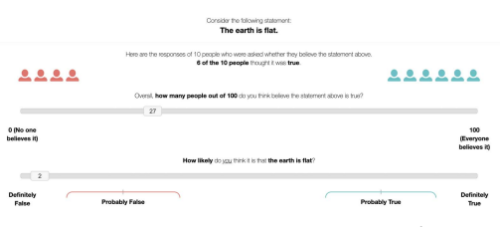2022-05-25 カリフォルニア大学バークレー校(UCB)
学術誌『オープン・マインド』のオンライン版に掲載されたこの研究結果は、人々がいかに簡単に、認識された人気に基づいて誤った信念を採用し、キーを押すだけでそれが流行するのを助けているかを確認するものである。
<関連情報>
- https://news.berkeley.edu/2022/05/25/like-it-or-not-were-prone-to-adopt-popular-beliefs-even-fake-ones/
- https://direct.mit.edu/opmi/article/doi/10.1162/opmi_a_00056/111216/Social-Prevalence-Is-Rationally-Integrated-in
信念の更新において社会的認知は合理的に統合される Social Prevalence Is Rationally Integrated in Belief Updating
Evan Orticio,Louis Martí,Celeste Kidd
Open Mind Published:May 15 2022
DOI:https://doi.org/10.1162/opmi_a_00056

Abstract
People rely on social information to inform their beliefs. We ask whether and to what degree the perceived prevalence of a belief influences belief adoption. We present the results of two experiments that show how increases in a person’s estimated prevalence of a belief led to increased endorsement of said belief. Belief endorsement rose when impressions of the belief’s prevalence were increased and when initial beliefs were uncertain, as predicted by a Bayesian cue integration framework. Thus, people weigh social information rationally. An implication of these results is that social engagement metrics that prompt inflated prevalence estimates in users risk increasing the believability and adoption of viral misinformation posts.


